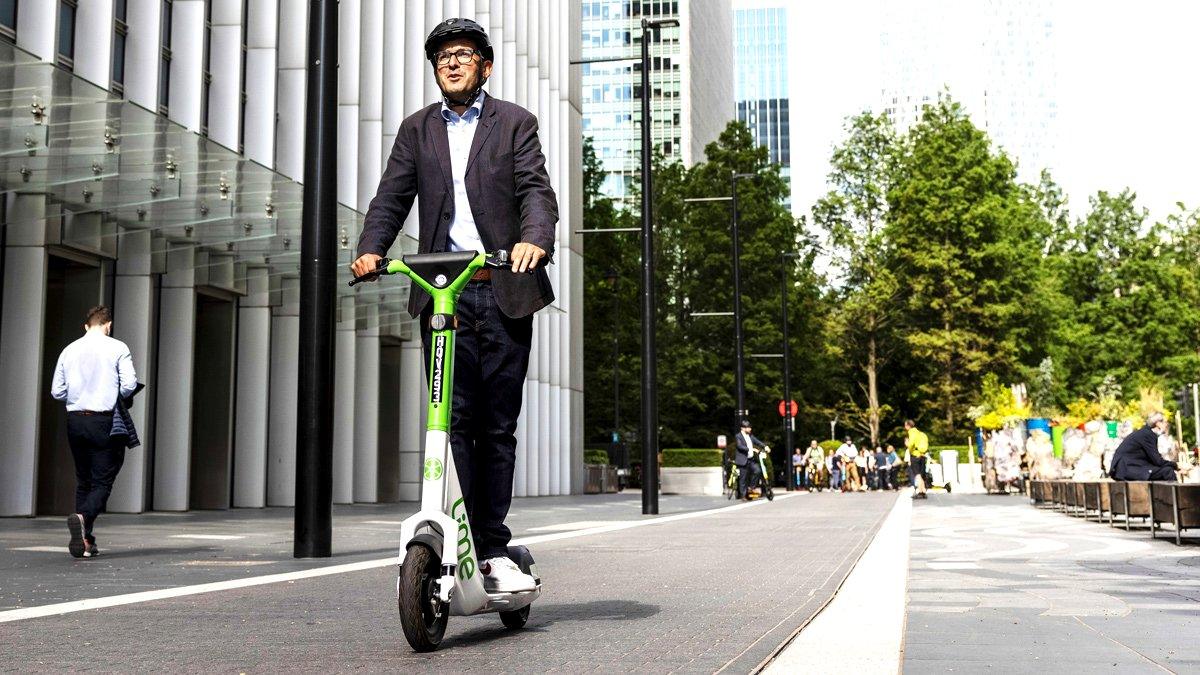E-scooter speed restriction hacks 'should be illegal'
- Published
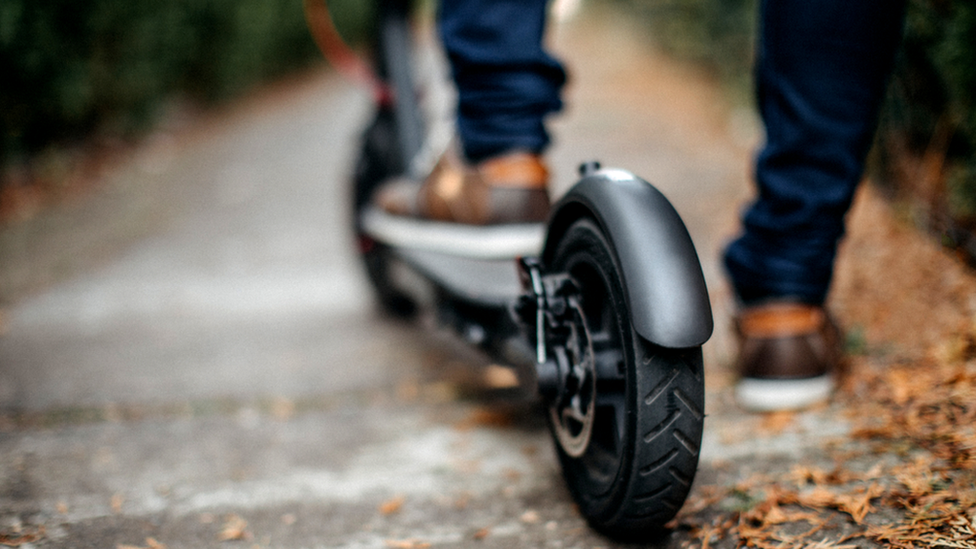
The BBC found mechanics were able to override e-scooter speed restrictions for £15
E-scooters are being hacked by mechanics to remove speed restrictions, a BBC investigation has found.
Privately-owned e-scooters are illegal to use on public highways, but are widely sold online and in shops. Most are restricted to 15.5mph.
The BBC has found mechanics offering to override e-scooter software, increasing top speeds to more than 21mph.
Safety experts said it should be illegal to remove speed limits, and called on manufacturers to do more.
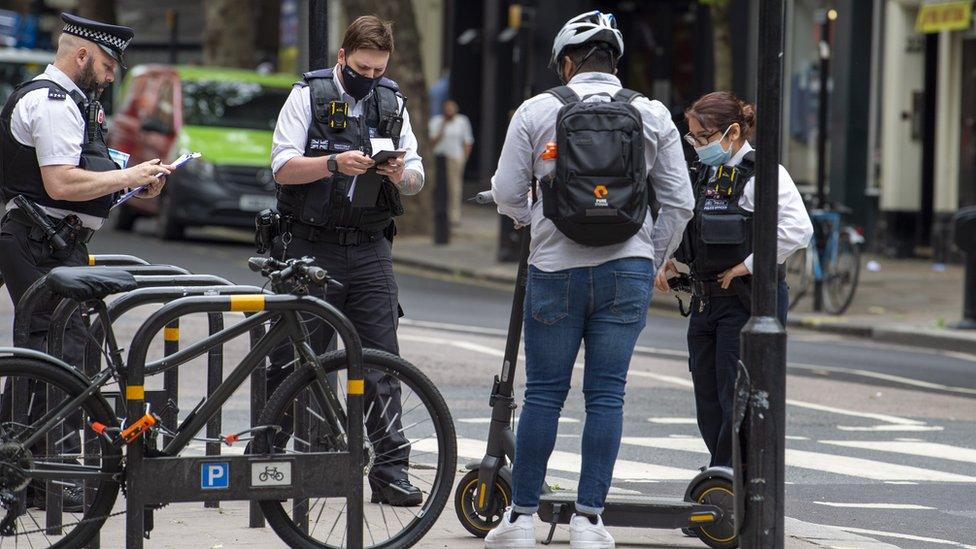
It is illegal to ride a privately-owned e-scooter on a public highway
Posing as an e-scooter owner who intends to illegally ride on public roads, a BBC South East journalist phoned nine randomly-selected workshops in Kent, East Sussex and London to ask if they could increase the speed.
Four offered to hack the software to remove restrictions, while one explained how customers could do it themselves. Two offered to sell new e-scooters that could travel in excess of 50mph, two declined and warned against tampering with an e-scooter.
An e-scooter workshop in London said they could increase the speed to 21 or 22mph.
The reporter said: "I'm using it to commute into London, it's not likely to get me arrested any more or cause any problems is it?"
The mechanic responded: "No, no, nothing whatsoever."
One shop in Brighton warned that the hack would cause "strain on other parts of the scooter, because obviously those parts weren't designed to go a bit faster".
All of those offering to hack the software highlighted potential hazards, except for one mechanic, who repeatedly said there was no risk to the rider or the integrity of the e-scooter.
Asked if the hack would make the e-scooter unsafe, the mechanic from Small Street E-scooters in Portslade, East Sussex, said: "No, no, no, you need to go a lot faster than that to make it unsafe."
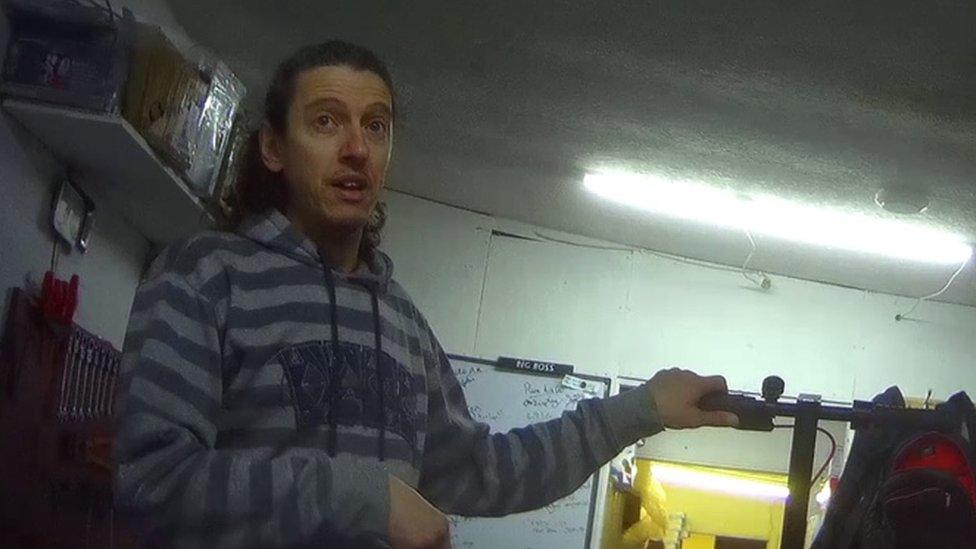
One mechanic insisted hacking e-scooters had no safety risks
Secret filming later captured this mechanic charging £15 to override an e-scooter's software, despite believing it was to be ridden illegally.
"I can make it go up to about 33km/h, 19.5mph, cost you £15," the mechanic said.
"Any scooter you buy, by law has to be 15.5mph as new, but generally, most of them you just press a button," he said.
The undercover reporter had told the mechanic they used the e-scooter for "bombing around town, getting down to the station, so I can get to work".
The mechanic later asked: "Do you ride on the road or the pavement?"
When the reporter responded "both", the mechanic said: "You should be on the road."
He advised avoiding pavements, but said riding illegally on public roads at higher speeds would not increase the chances of being stopped by police.
"You are still breaking the law, so it doesn't matter how fast you are going," he said.
E-scooters: Many Brighton riders were clocked at over 20mph
At the invitation of the mechanic, the undercover reporter briefly rode a hacked e-scooter on a private road before returning to the shop to complete the transaction.
Testing later found he had increased the top speed of the e-scooter - a Xioami Pro 2 - to more than 21mph.
Using a hired speed camera, the BBC captured e-scooters being ridden in excess of 20mph in Brighton, with one travelling at 37mph.
The BBC also found private sellers advertising hacked e-scooters using online marketplaces.

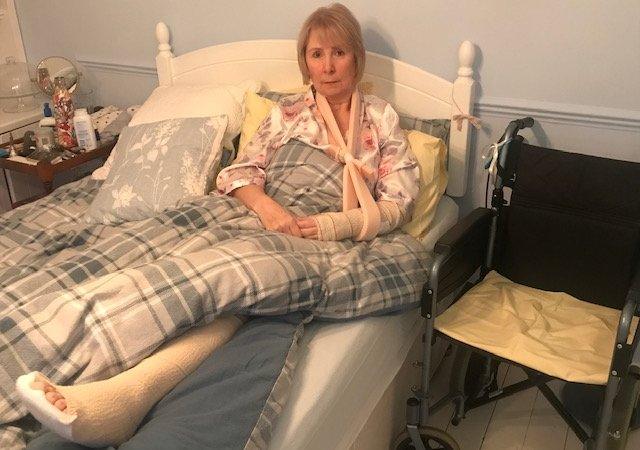
Pauline Lilford was hit by a scooter thought to be travelling at 20mph
Pauline Lilford was struck from behind by an e-scooter thought to be travelling at 20mph on the pavement in Canterbury, Kent.
She spent five days in hospital with a broken leg and a "smashed up" elbow, which was wired back together in surgery in November 2020.
Full strength and mobility has not yet returned and the psychological impacts continue, she said. "I'm just more nervous and anxious than I was."
She wants private e-scooter sales to be banned, because "it's just so easy to bend the rules".

The Department for Transport is considering the future of e-scooters and is collecting data from trial rental schemes in 31 areas, where speeds are restricted to 15.5mph or below.
There is currently no speed limit for privately-owned e-scooters, but the government is under pressure to cap speeds at 12.5mph if they are legalised, external, due to concerns over safety.
Fifteen people have died in crashes involving illegal private e-scooters since 2019, according to the Parliamentary Advisory Council for Transport Safety (PACTS).
A teenage girl riding an e-scooter died following a crash with a van in east London on Monday.
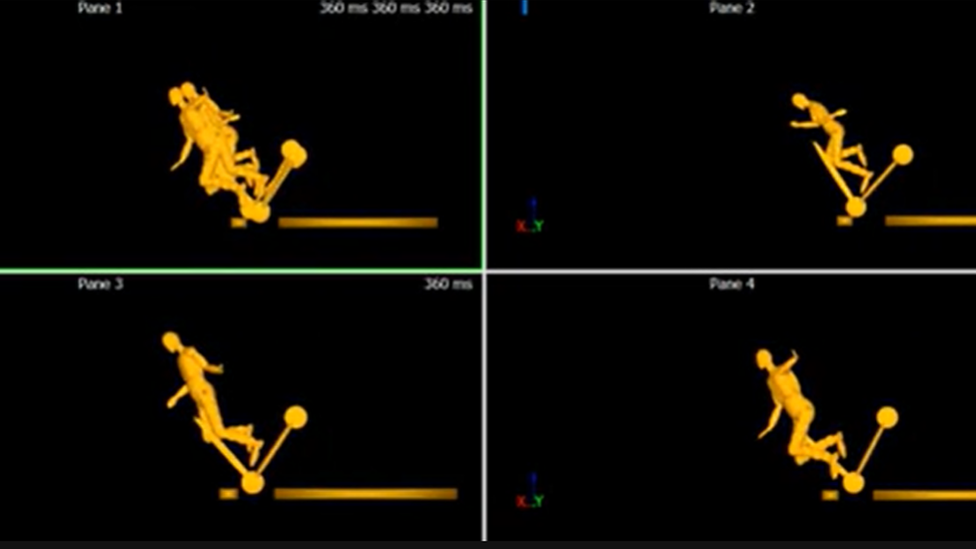
Researchers have modelled the impacts of higher speeds
Experts say riding at speeds over 15.5mph can have a big impact on the severity of injuries.
Mazdak Ghajari, a senior lecturer at Dyson School of Design Engineering at Imperial College London, said it would increase the likelihood of skull fractures and fatal injuries in a crash.
Responding to the BBC's findings, brain injury charity Headway said it should be made a criminal offence to "tamper with the speed limiters on e-scooters".
"The people that are willing to do that are placing other human beings in jeopardy," chief executive Peter McCabe said.
His concerns were echoed by PACTS, which said "anti-tampering mechanisms should be included in construction".
Manufacturer Xioami said it limits all scooters sold in the UK to 15.5mph to conform with "the standard set across most of Europe".
It promised to introduce a software update in the coming weeks that would "significantly reduce the likelihood of third party modifications".
Small Street E-scooters said: "We encourage all electric scooter riders to adhere to all laws applicable in their location."
It said it sold safety equipment so that "riders who ride on private land, with the owner's consent, can ride safely".
The Department for Transport said it would consider the viability and safety of e-scooters when trials end in November.
A spokesman said: "We continue to support the police by ensuring they have the tools needed to tackle illegal use and have recently reminded retailers of their legal responsibilities when selling e-scooters."

Follow BBC South East on Facebook, external, on Twitter, external, and on Instagram, external. Send your story ideas to southeasttoday@bbc.co.uk.
Related topics
- Published22 March 2022
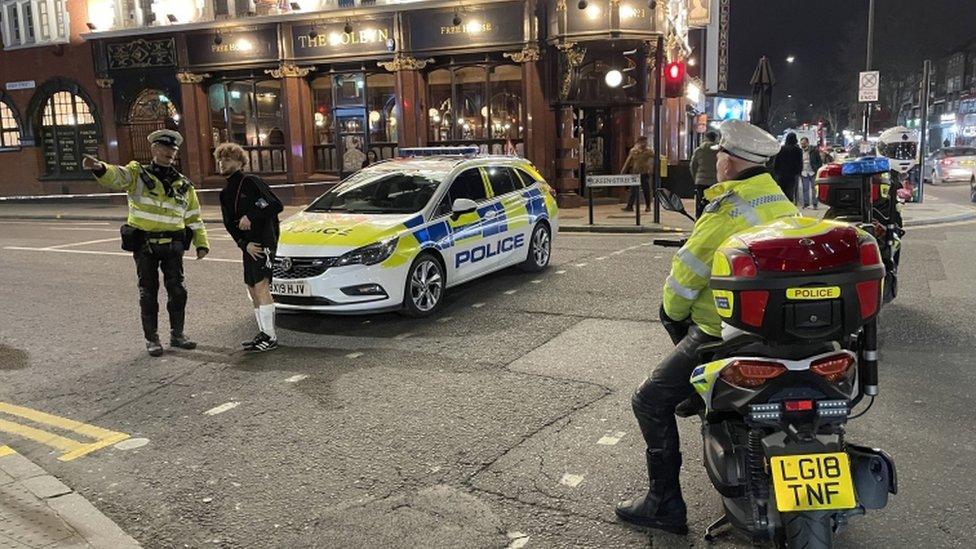
- Published27 September 2021

- Published22 March 2022
